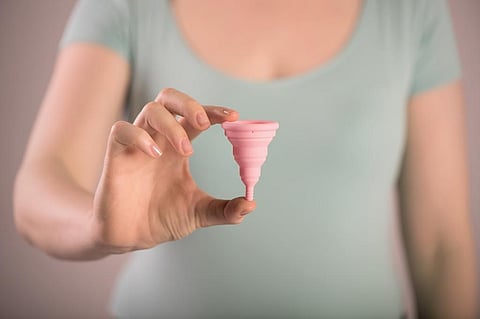

“You simply cannot look a woman between her legs and read her sexual story,” says Ellen Støkken Dahl, an Oslo-based doctor, sexual health worker and co-author of a book called Wonder Down Under.
Dahl said this while giving a TEDx Talk with the co-author of the book Nina Dølvik Brochmann on virginity fraud. “The hymen doesn't have to break at all during the first intercourse. It's more like a scrunchy, in function as well as in looks. You can stretch a scrunchy right? You can stretch a hymen too. In fact it's very elastic,” says Dahl and Brochmann added that this truth has been known in medical fraternity for over 100 years.
This fear of breaking the hymen has been keeping women from paying attention to their menstrual hygiene. They shy away from using a menstrual cup so that they don’t break the hymen. Doctors say that although there are not many studies on the cup, but fewer cases of sexually transmitted diseases, bacterial vaginosis, endometriosis and adenomyosis were reported in people using it when compared to those using sanitary napkins.
A menstrual cup is used to collect menstrual blood during the monthly cycle and it has to be inserted in the vagina. It is made of medical grade silicon, which is used in making catheters and other medical instrument that are put in the body and don’t cause any harm. A cup can be used for years and doesn’t land up in landfills as often as sanitary napkins do.
Still, there are doctors who don’t recommend it. “I would not suggest it [menstrual cup] to unmarried and sexually inactive women as the hymen would bear the impact. There is no way you can insert the menstrual cup while being a virgin,” says a Mumbai-based gynaecologist.
This myth continues to make lives of women around the world difficult. While debunking it, Dahl said, “For a lot of women, a hymen can be elastic enough to handle a vaginal intercourse without sustaining any damage. For other women, the hymen may tear a bit to make room for the penis, but that won't make it disappear. It may look a bit different from before though.”
But hymen is just a membrane covering the mouth of the vagina and we are the ones associating it with sexuality, says another gynaecologist who is working towards educating gynaecologists and asking them to recommend it to their patients. “This membrane need not be intact depending upon how active you are physically. It ranges from being a very slim membrane with a big hole to being one that is imperforate sometimes when even your period blood doesn’t come out,” said Dr Meenakshi Bharat, a gynaecologist.
The phobia of not bleeding on your wedding night has made women go to extreme lengths. “Women are so afraid not to live up to the myths about the hymen that they chose to use different virginity quick fixes to assure a bleeding. That could be plastic surgery known as revirgination, it could be vials of blood poured on the sheets after sex, or a fake hymen bought online with theatre blood and a promise to kiss your deep dark secrets a goodbye,” said Dahl while adding that once doctors examined 36 pregnant teenagers and found clear signs of penetration in just two of them.
Although we can be glad that there are mothers who think it’s about comfort and nothing else. Pallavi Mishra, 38, who has an 11-year-old daughter, said, “I just don’t want my daughter to feel that it’s too much to handle. I wish to make the whole experience as easy as possible for her. May be inserting a cup could be a little tricky. But the only one way to know would be to actually use it.”
As a society obsessed with virginity, we need to give our girls and women some space and confidence to be able to make the choice. Other than menstrual cups, there are also more eco-friendly and healthy options available. It is us who need to reach out and explore.